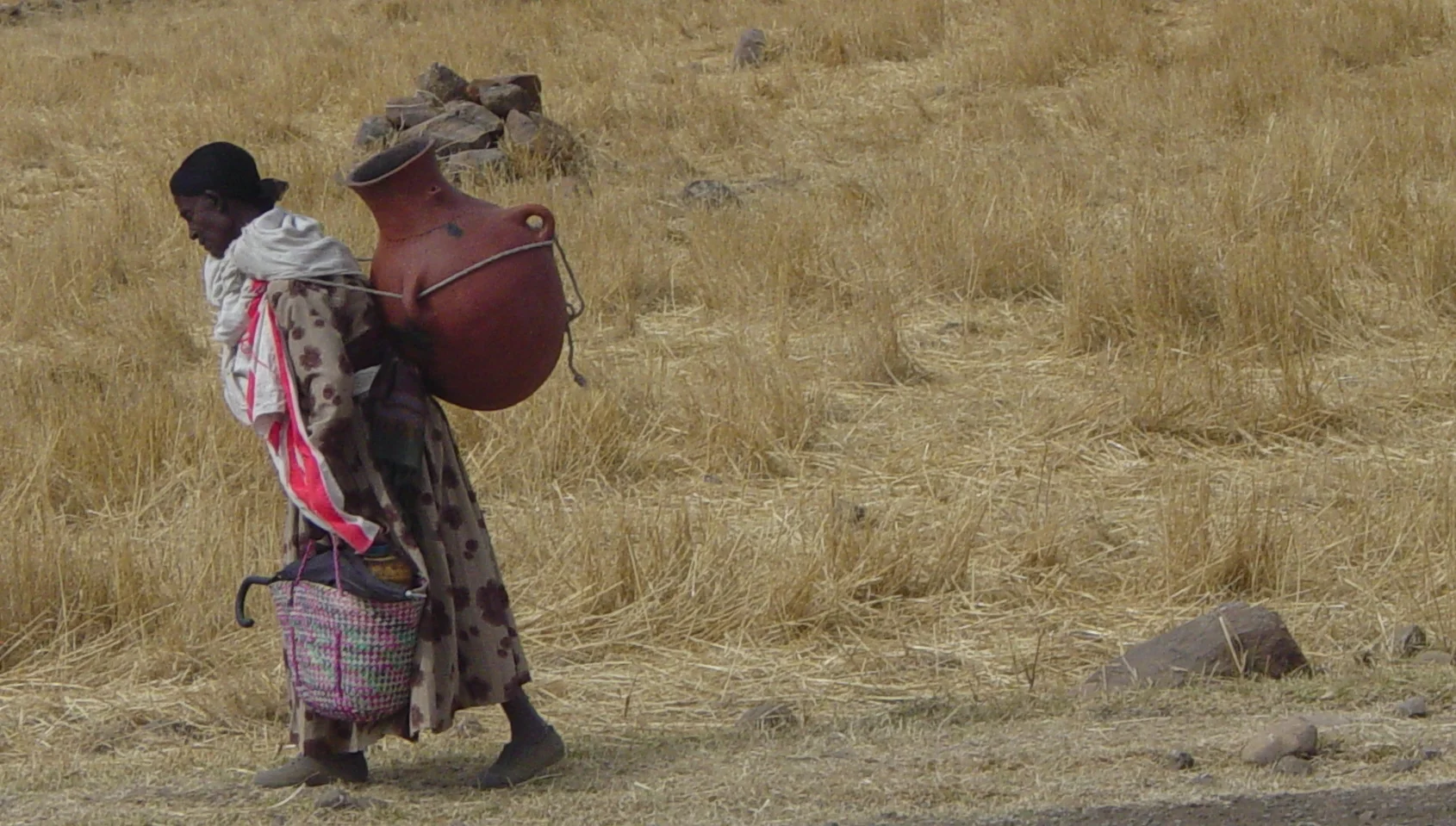The establishment of easy access to potable water changes lives. But many countries in the world, including the United States, still lack this resource in numerous cities and towns. In Ethiopia clean water is the exception, but there are both government and non-government programs to improve access. The result is improved health for everyone involved, but dramatic life changes for the women and children who collect water for the household since they have more time for entrepreneurship, school, and other productive and enlightening pursuits.
TMF’s First Water Project in Ethiopia
This is the spring cap at Channa village which includes a sand filter, overflow pipe, flushing pipe and water delivery pipe. The spring cap is periodically treated with chlorine.
The Murulle Foundation has a history of improving access to potable water for villages in Ethiopia. In 2002-2003 a gravity fed system was developed for the village of Buko east of the town of Goba, Oromia Regional State. A spring was cleaned and capped and the water was filtered and piped to a 5,000-liter (1320 gallons) reservoir near the town. Water was then piped from the reservoir to three spigots where townspeople collect the water.
The Dawro Zone Water Project in Ethiopia
The reservoir at Channa holds 5,000 liters (1320 gallons) of water. The structure includes vent, overflow, flushing, and water delivery pipes. A pressure valve box is in the foreground.
In 2015-2017 The Murulle Foundation worked with Rotary International, the Rotary Club of Fort Collins – Breakfast, the Rotary Club of Addis Ababa – Bole and the Central Highlands Foundation in a successful effort to provide potable water for three villages in a remote area of the Dawro Zone in the Southern Nations, Nationalities and Peoples Regional State (SNNPRS) in Ethiopia. The project was funded through a Rotary Global Grant. The Murulle Foundation participated by funding a retired registered professional civil engineer to visit the sites and oversee construction. The Aba-Ereri, Bezabih Bayou and Chana springs were capped and provided with a sand filter. The water was piped to stone and concrete reservoirs and from there to distribution points for people and livestock. Perhaps as many as 8,000 people benefited from this $76,650 project at a cost of less than $10 per person.
The Wolaitta Water Projects in Ethiopia
This is the Aba-Reri village four-faucet distribution point (two faucets on each side). Benefits include empowerment of women because they can fill containers quickly and since the distribution points are nearer the village the women and children walk a shorter distance resulting in free time for other activities; and clean water with 80% decrease in water-borne diseases. Young girls who collect water can do it more quickly and then spend more time in school.
Communities in the Boloso Bombie and Kindo Koisha Districts each have a cleaned and capped spring and a 50 cubic meter reservoir (approximately 13,210 gallons) as pictured here.
Recently, The Murulle Foundation was approached by the Central Highlands Foundation to assist in developing potable water for the Boloso Bombie and Kindo Koisha Districts in the Wolaitta Zone of the SNNPRS. The Central Highlands Foundation was the major funder. Others along with The Murulle Foundation included Trinity Lutheran Church, Fort Collins, Colorado; the MRK Foundation; and the Wolaitta communities. These are also gravity-fed systems which require minimum maintenance that will be provided locally. These two projects have now been completed and provide potable water to about 10,000 people at a cost of less than $5 per person.
Future Water Projects in Ethiopia
Our next water project may be in the Gurage area of southwest Ethiopia. We expect to work with our partners to provide a solar-powered pump project that will provide potable water for about 5,000 people. Keep an eye on this page for updates! And don’t miss the next TMF Newsletter for more news!
This is the type of water distribution point where women and small children collect water for their homes. In this picture the faucets are turned on to show the water flowing. Women and small children collect the water but men always want to be in the initial pictures showing the construction.







